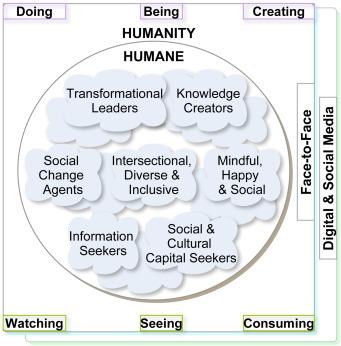Top Skills & Responsibilities of an Implementation Specialist for Learning Platforms
With the ongoing digital transformation in higher education and K-12 schools, learning platforms have become central to delivering quality education. If you’re passionate about technology and education, stepping into the role of an Implementation Specialist for Learning Platforms offers a dynamic and rewarding career path. In this complete guide, we’ll explore the key skills, core responsibilities, benefits, and practical tips to help you succeed in education technology roles at universities, colleges, or schools.
What Is an implementation Specialist for Learning Platforms?
an Implementation Specialist serves as the technological bridge between learning platform providers and educational institutions. This EdTech professional ensures the successful deployment, configuration, and integration of digital learning solutions such as Learning Management Systems (LMS), virtual classrooms, assessment tools, and collaboration platforms. Their work directly impacts teacher productivity, student engagement, and institutional outcomes.
Key Responsibilities of an implementation Specialist in Education Technology
Understanding the main job responsibilities is crucial for aspiring implementation Specialists. These include:
- Platform Deployment & Integration: Leading onsite or remote setup, seamlessly integrating learning platforms with existing institutional systems such as student information systems (SIS), authentication services, and other educational tools.
- Needs Analysis & Customization: Working closely with academic and IT staff to assess institutional requirements, recommending tailored solutions and customizations to meet curriculum goals and administrative needs.
- Project Management: Coordinating timelines, resources, and stakeholder communication to ensure each implementation is delivered on schedule and within scope.
- Training & Support: Designing and conducting training sessions for faculty, staff, and students to optimize platform adoption. Providing ongoing technical support and troubleshooting expertise.
- Data Migration: Facilitating the secure transfer of legacy data, student records, and course materials into the new learning system.
- User Documentation: Developing clear user guides, FAQs, and help resources for a variety of audiences.
- Quality Assurance: Testing all features, monitoring system performance, and ensuring compliance with data privacy and security standards.
- Feedback & Continuous Improvement: Gathering user feedback, monitoring usage analytics, and collaborating with product teams for ongoing enhancement.
Top Skills Required for implementation Specialists in EdTech
To excel as an Implementation Specialist for Learning Platforms in universities, colleges, or schools, you’ll need a blend of technical proficiency, project management, and interpersonal abilities. Here are the essential skills:
1. Technical Expertise
- LMS Knowledge: Familiarity with popular platforms like Canvas, Blackboard, Moodle, or Google classroom. Understanding APIs, plugins, and system architecture.
- integration Skills: Experience integrating software with SIS, authentication protocols (SSO), and third-party applications.
- Database & Data Management: Understanding databases (SQL), user data migration, and data security best practices in the education sector.
- Basic Coding: Competence in HTML, CSS, XML, or scripting for customizing platform features (not always required, but valuable).
2. Project Management
- Organization & Planning: Ability to manage multiple projects, set priorities, and meet deadlines.
- Risk Management: Identifying potential challenges and developing mitigation strategies.
- Agile & Waterfall Methods: Knowledge of project management methodologies used in software deployment.
3.Communication & Training Skills
- Stakeholder Engagement: Articulating technical concepts to non-technical audiences, gathering feedback, and managing expectations.
- Training Delivery: Designing and conducting interactive workshops, webinars, and training sessions for diverse user groups.
- Documentation: Producing user manuals, video tutorials, and fast-start guides.
4. Analytical & Problem-Solving Skills
- Troubleshooting: Diagnosing and resolving technical issues during and post-implementation.
- Data Analysis: Using analytics tools to evaluate platform usage, identify trends, and report on KPIs.
5. Customer-Centric Approach
- Empathy: Understanding the challenges faced by faculty, staff, and students when transitioning to new technologies.
- Patience: Supporting users and fostering platform adoption with a positive attitude.
Benefits of Becoming an Implementation Specialist in Education technology
Implementation Specialists enjoy a rewarding career path in EdTech with benefits including:
- Professional Growth: Exposure to cutting-edge learning technologies and continuous skill progress.
- Impactful Work: Directly influencing the learning experiences of thousands of students and educators.
- Variety: Opportunities to work with diverse institutions, projects, and technologies.
- Collaboration: building relationships with IT teams, faculty, administrators, and product developers.
- Career Mobility: Leverage your skills into advanced roles like EdTech Project Manager, Product specialist, or training Lead.
Practical Tips for Aspiring Implementation Specialists
If you’re looking to break into or grow in this EdTech role, consider the following proven tips:
- Build Your Technical Foundation: Gain hands-on experience with learning management systems or similar platforms. Enroll in online courses or certifications.
- Develop project Management Skills: Take on student projects,volunteer opportunities,or seek certifications like PMP or Agile.
- Focus on Communication: Practice translating complex concepts for non-technical users. Create sample training materials or deliver mock sessions.
- Stay Current: Subscribe to EdTech news, attend webinars, and network with other professionals to stay ahead of technology trends.
- Showcase Relevant Experience: Highlight internships, classroom integration projects, or volunteer work when tailoring your resume for EdTech jobs at universities, colleges, or schools.
- Demonstrate Soft Skills: Showcase your empathy, patience, and teamwork abilities during interviews or in your application materials.
Implementation Specialist Career Outlook in EdTech
Education technology is one of the fastest-growing sectors in academia, with institutions investing in robust e-learning infrastructures. The demand for skilled Implementation Specialists for learning platforms continues to rise as universities, colleges, and schools prioritize blended, online, and hybrid instruction models.This guarantees promising career prospects, professional growth, and the chance to make a lasting impact on learning outcomes.
conclusion
If you’re passionate about transforming education through digital solutions, the role of an Implementation Specialist for Learning Platforms at universities, colleges, or schools is an excellent career choice. By mastering the top skills—including technical know-how, project management, communication, and problem-solving—you’ll be equipped to help institutions leverage the full potential of modern learning platforms. As EdTech continues to evolve, your contribution as an implementation specialist will play a vital role in shaping the future of education for students and educators alike. Begin your journey today and start making a difference with your expertise in education technology!

